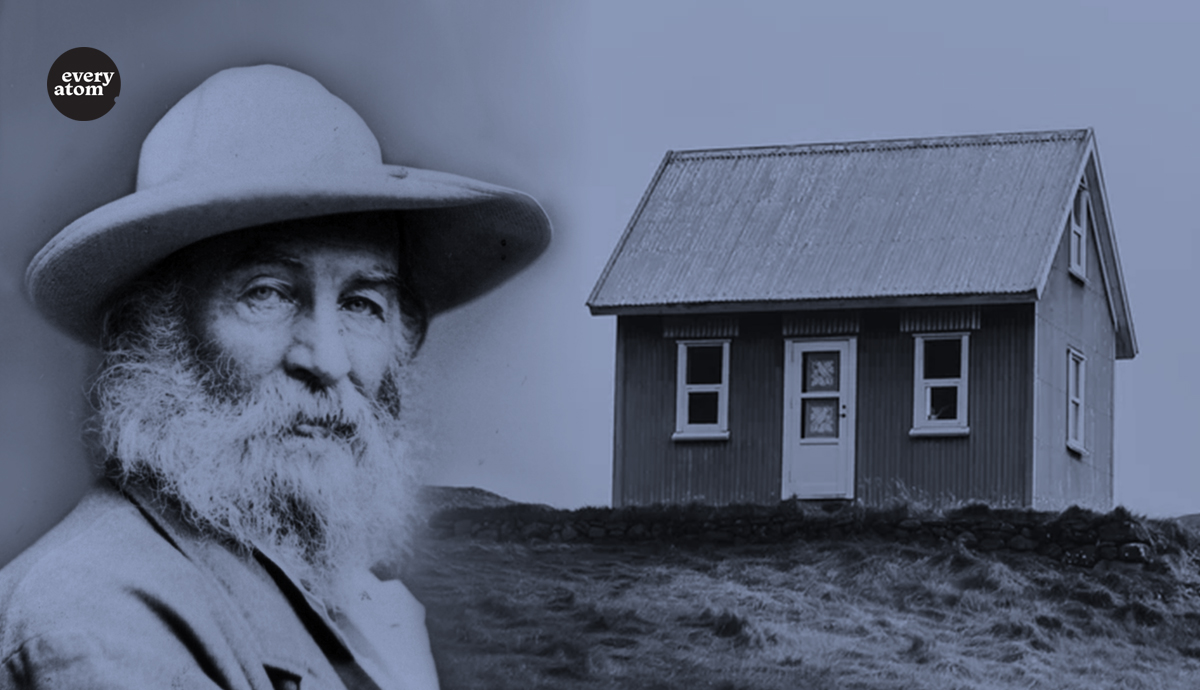Every Atom | No. 50
Introduction to Every Atom by project curator Brian Clements
And gave him a room that entered from my own, and gave him some coarse clean clothes
In Whitman’s description of the flight and rest of a fugitive, we are reminded of the sheer brutality of slavery, as well as the radical possibility of humanity in the face of immorality. The man whose “sweated body” finds comfort in the scene is a piece of outlaw property in the eyes of the state. His attempted escape from bondage is assisted by a man who welcomes this stranger into his home, and as he cares for the man—who could be pursued by dogs or captured by any citizen who cared to see his return to enslavement—he restores the slave’s health. The slave restores the man’s integrity. In drawing water for the man’s “bruised feet,” Whitman evokes Jesus’s washing of his disciples’ feet, a gesture of humility that instructs believers to do as the man does: give relief to the reviled, the oppressed, those who are fleeing persecution. A hundred years after the publication of this rich text, Whitman’s rendering of the man “passed north” is evocative of the legacy of slavery in the United States, which remains the nation’s original sin unrepented for and unpaid, irreconcilable debt. The spirit of the time the two men share in the passage animates us today in the ongoing struggle against exploitation. The grace is all around us—in a migrant’s discovery of a jug of water placed in the desert, in the prayers said for the inmate, and in the poet’s words that allow us to fix our eyes lovingly upon the seeker at our door.
Recommended
Nor’easter
Post-Op Appointment With My Father
Cedar Valley Youth Poet Laureate | Fall 2024 Workshop







